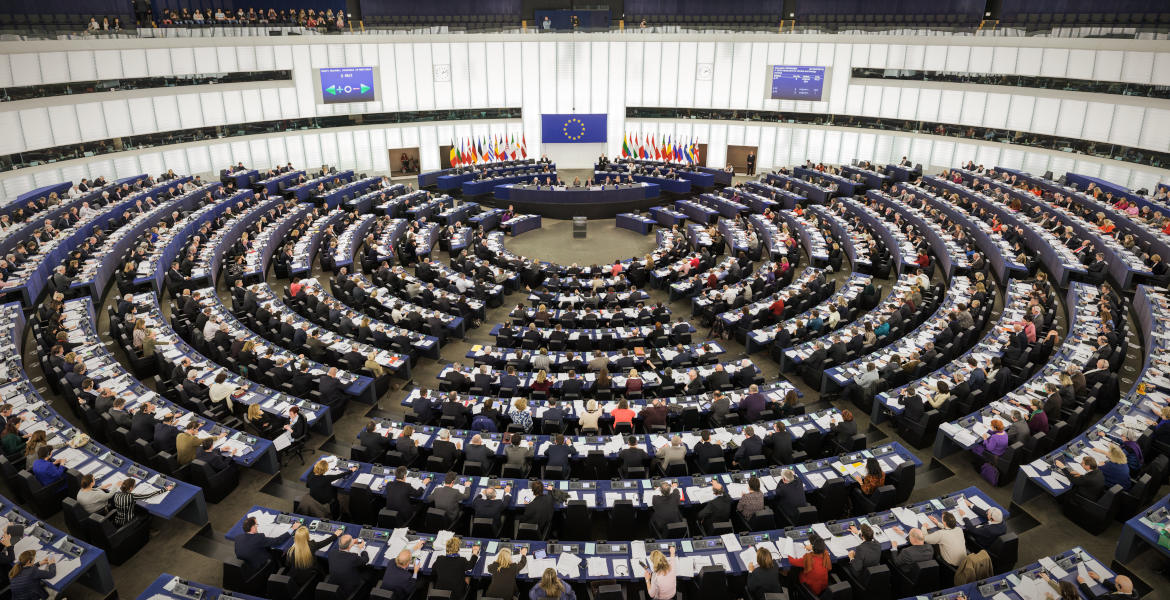Despite polls showing that Sweden’s new gender identity act lacks popular support, it was passed by a large majority on Wednesday afternoon.
Within the Moderate Party there is widespread dissatisfaction with the law within their own party – but in the end only one M member dared to go clearly against Ulf Kristersson’s line and vote no.
Few Swedes have missed the controversy over the new Gender Identity Act. The majority of the Moderate parliamentary group opposed the new law – but prime minister Ulf Kristersson and the party leadership, who pushed for its introduction, threatened reprisals against those who went against the party line.
– More than 80 percent of the group, at a low estimate, are vehemently opposed. There is, of course, enormous anger and frustration with Ulf, said a source within the party.
The party had to organize several crisis meetings to pressure and convince their own party colleagues to support the LGBT bill, and while it is unclear exactly what was said at these meetings, it is clear that the efforts paid off.
The Gender Recognition Act was passed in parliament with 234 votes in favor and 94 against, and only one moderate MP dared to go against the party line – Ellen Juntti.
Jag antar att man får passa på att gratulera de 5 % av Moderaternas väljare som stöttade partiets agerande idag…. pic.twitter.com/CFfkD0p2IH
— Mattias Karlsson (@sdkarlsson) April 17, 2024
“I think it’s wrong”
– I just can’t vote in favor of allowing 16-year-olds to change their legal gender. I think it’s wrong. It’s too young, she told tax-funded broadcaster SVT.
According to the party’s group leader Mattias Karlsson, Juntti now risks being penalized for her principled stand.
– I realize that she has voted against what we have decided together as our political stance. At the moment I feel very disappointed in her, he says.
The nature of the “retribution” will be decided after a meeting later this week.
Sweden democrat leader disappointed with the Moderate party
Social Democrat Patrik Björck also voted against his party – otherwise the Sweden Democrats and the Christian Democrats were the only parties in the chamber to vote no – and Sweden Democrat leader Jimmie Åkesson is very disappointed with the outcome.
– I think it’s unfortunate, I think it’s unfortunate that a proposal that obviously lacks support among the population is voted through so easily. In a case like this, where children are involved, it becomes even more sensitive. I think it’s a decision that needs to be reversed, he said when the result was finalized.
– I am incredibly disappointed, not least by the behavior of the Moderates in this matter, he continued.
On X, he also promises to repeal the law if the SD becomes the governing party, and other Sweden Democrats express similar disappointment.
En framtida sverigedemokratisk regering kommer arbeta för att avskaffa den idag klubbade könstillhörighetslagen. Därtill, menar jag, bör det utredas i vilken utsträckning könskorrigerande underlivskirurgi ska betalas av Sveriges skattebetalare.
Nu är den här farsen över för den…
— Jimmie Åkesson (@jimmieakesson) April 17, 2024
Researchers critical
The changes, which are expected to come into force on July 1 next year, will allow minors (16 years old) to “change” their legal gender. In addition, a diagnosis of gender dysphoria will not be required to undergo a legal “sex change” – and it will also be easier to undergo surgical sex reassignment treatments, as they will no longer require authorization from the National Board of Health and Welfare.
Critics have pointed out that the new law is not based on facts or science, and that it is deeply inappropriate to allow minors to undergo this kind of change, especially since they often have temporary identity crises of various kinds.
Others have emphasized that it is currently unknown why the number of gender dysphoria diagnoses has risen so sharply in recent years, and that this is something that needs to be properly investigated.
Researchers also note that “many” young people seeking treatment for gender dysphoria have also been diagnosed with autism or have autistic traits, so there is very little evidence that “gender reassignment” will actually help them feel better, and that investment should instead be made in child psychiatry.
Anger against Kristersson
According to a poll by Demoskop/Aftonbladet, the law does not have the support of the population. Only one in five Swedes is in favor of the changes – 60 percent are against, and the rest are undecided. Nevertheless, 6 out of 8 parties voted in favor.
On social media, there is a lot of anger towards the political elite and especially towards the Moderate Party, which under Kristersson’s leadership profiled itself as a liberal-conservative and somewhat “tougher” alternative – something many are now questioning.
Slutade rösta på @moderaterna efter Reinfeldts uppgörelse med MP men inbillade mig ett tag att de var hyfsat påväg tillbaka. Idag känns de verkligen längre bort än någonsin, kör fullständigt över folkvilja, sympatisörer, medlemmar och ledamöter för detta ?!?#svpol
— Hᴀɴᴋᴏ (@henrikj72) April 18, 2024
Other users call the party “spineless followers” who “pretend to be conservative” and express anger that the party is going against its own voters. Many also question why it was so important for Kristersson to pursue this issue, promising to abandon M and vote for other parties in future elections.








